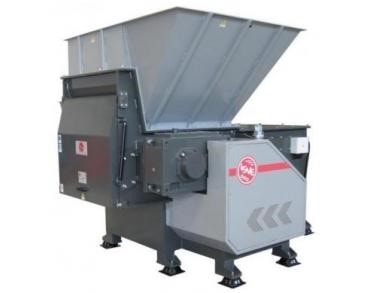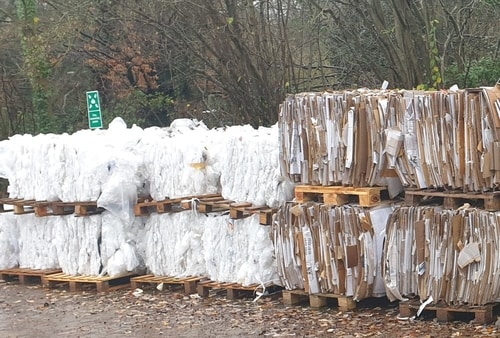

Buy Recycled Material
Sell Your Scrap Plastic
Sustainably Sourced Polymers
Granulators
Shredders
De-dusters & Separators
Recycling Lines
Waste Balers
Used Recycling Equipment
Toll Granulation Services
Energy Management & Renewables
PlastikCity is designed for use by the plastics sector, so we will concentrate on recycling at the industrial level. This involves unwanted or scrap plastic items being converted back into useable feedstock. It does not involve the collection and processing of household waste.
Manufacturers’ waste
This will be mainly offcuts (perhaps from thermoforming) and scrap components generated by plastic processing companies. They need to be pre-sorted, clean and free from items such as metal fasteners.
Post-industrial items
For example, companies may buy raw materials in non-returnable plastic containers.
Redundant stocks
Examples would be products that have been replaced or upgraded, or surplus stock that needs to be removed to free up warehousing space.
Damaged items
A good example would be damaged wheelie bins collected by a local authority, supermarket crates or gas/water piping.
General post-consumer items
Coat hangers, fridge plastics, cable reels, CD cases, seed trays, automotive parts such as car bumpers.
Common material grades that are recycled
ABS • EPS • HDPE • LDPE • PA (Nylon) • PC • PC/ABS • PET • PETG • PMMA • PP • PS • PVC
Depending on the quality of the bought-in material, it may need to be sorted by polymer type, screened for metal contaminants and washed. If scrap products are pre-sorted by grade and colour, this is far more attractive to both the reprocessor and the end-user.
There are three common ways that material is processed so that it can be reused.
It is common practice to blend the recycled content with virgin material to achieve a more uniform specification (for example, MFI range). An exact colour can be specified by quoting a RAL number or other similar industry nomenclature. Other common additives include UV and heat stabilisers, lubricants to aid processing, or anti-static agents.
To source any of the above grades, visit our ‘Buy Recycled Material’ section.
Providing quantities are sufficient, companies such as those listed in the PlastikCity category for Sell Your Scrap Plastic will tender for your stock. Depending on your location, collections are sometimes available. If you are generating waste product continuously, suitable stillages may be provided for you to fill.
If you are a plastic processing company, PlastikCity also has companies that offer a Toll Granulation service, meaning they can collect your scrap product, reprocess it, and then return it to you in a useable form.
Biodegradable polymers should not be confused with recyclable grades. They are designed to break down into basic and harmless chemical compounds at the end of their serviceable life. To be classed as fully biodegradable, a polymer must be reduced to carbon dioxide, water and biomass within a defined period. The standard quoted (EN 13432:2000) is most often 90% breakdown within 6-months.
The environmental conditions under which each material will degrade varies greatly. The necessary conditions determine the designation of the materials, e.g.:
The most popular grade currently in general use is PLA, an Aliphatic Polyester derived from fermenting biomass products such as sugar cane or beet, corn etc. This material will fully degrade, but only by using an industrial composting process with specific processing parameters and duration. Other products are water-soluble and will readily degrade in a household composter. An example would be milk protein-derived products.
Typical applications for biodegradable polymers involve single-use products, particularly ones that can enter the environment, e.g. through littering. Water-soluble grades are commonly used for their functionality, e.g. washing pouches that need to quickly release their contents in a washing machine or dishwasher.
Downsides of these polymers include:
When specifying a biodegradable material, consideration should be given to both the products application and its end of life outcome. For example, a single-use plastic cup will only need a relatively short life-span once used, and because it may end up as litter, should ideally degrade with extended exposure to and moisture.
Using additives to make standard polymer grades biodegradable
There are also specialist additives that can be formulated into standard polymer grades such as petrochemical-derived PP or PE. The main reason most plastics aren't readily degraded relates to their closed structure and solid form, meaning that water and/or microbes cannot penetrate. These additives are designed to remain dormant for a period of time, but then open up the structure of the plastic at the appropriate time in a product's life-cycle. This is typically achieved through a specific type of microbial attack, for example, the high concentrations of bacteria found at landfill sites. Once the additive has broken down, pores are left in the plastic material, allowing microbes to penetrate and attack the structure.
In everyday use, the additive is not subjected to high concentrations of these microbes, and can often be readily recycled. Only when entering the waste disposal system will biodegradation commence.
Toll Granulation is a service where the customer (e.g. injection moulder or extrusion company) retains ownership of the material. Our partners in the Toll Granulation section will take your waste and scrap plastic, reprocess it and then return it to you in granular form to be reused on your machinery.

Shredders are generally used to break down large items such as film bales, plastic purgings, automotive bumpers, pipes, profiles and even voluminous parts such as bins. Items are fed into a large hopper and drawn through the equipment by one or two rotating shafts. To reprocess the shredded material, it may first have to be granulated.
Granulators are used for reducing the size of plastic waste such as runner systems, smaller scrap components or pre-shredded material. This allows for the resulting plastic flake to be readily reprocessed.
Beside-the-press models are smaller units that can be located next to a processing machine, to be fed a runner system by a robot or sprue picker. The granulated material can then be fed back into the machine in a closed-loop system. Rotor type granulators operate at lower speeds and make less noise than ‘flying blade’ style units, so are better suited for this type of application.
Centralised processing systems are larger granulators that can be used to meet the needs of a whole factory, as they can process larger items in higher volumes. These centralised systems tend to be isolated from the rest of the production area, as noise levels can be high. A sizing grid (mesh) is used to make sure that the flake produced is below a specified size.
Units can usually be supplied with soundproofing enclosures and additional auxiliary items such as:
Edge trim granulators are specialised units designed to run continuously in conjunction with a plastic sheet extrusion line. Trim from one or both sheet edges is guided through adjustable rollers into the granulator.
Once processed, the resultant regrind is typically fed directly back into the production line (closed-loop).
Thermoforming granulators are used in conjunction with fully automated thermoforming lines, processing the skeletal waste produced by the process. During the startup process, the granulator is fed a full sheet of material.
The unit can be positioned either in-line with the processing machine, below the machine within the support frame, or in a pit, if the granulator is too large to fit within the frame. Rollers or other traction devices are used to guide and pull skeletal waste into the granulator.
De-dusting & separation equipment is used for separating light impurities or dust from re-processed material or granulated plastic. This is usually achieved during the conveying of material from granulators or shredders to storage.

Image courtesy of Compact and Bale Ltd.
Waste Balers are hydraulically powered units that crush materials within a chamber. The compaction of the material can significantly reduce its volume, making it easier to store and transport. In some cases, a volume reduction of up to 90% can be achieved.
Although Balers can help to reduce the volume of refuse destined for landfill, within the Plastics Sector, their primary function is to aid in the recycling of plastic scrap and cardboard. Both these commodities have value when sold to a specialist recycling company, so making them easier to store, handle and transport is good practice.
Balers vary significantly in their size and compacting power. The power of the hydraulic ‘press’ within a unit is measured in metric tonnes of force. In essence, the higher the force applied per unit of surface area (e.g., per cm²), the more compact and dense the resulting bale of material will be.
Lower tonnage models are ideal for cardboard and flexible plastic packaging materials such as film. If rigid plastics are to be processed, then a higher tonnage unit will need to be specified.
The most attractive format of bale for re-processors is the Mill Size Bale. This has the optimum size and density for transportation and handling. Some models of Waste Baler are called Mill Size Balers.
The advantages of converting plastic and cardboard waste into bales include:

Image courtesy of Compact and Bale Ltd.
- A 65tonne horizontal waste baler
capable of producing bales weighing
around 750kg.
Waste Balers have two basic designs: Vertical and Horizontal models. Vertical units are the most popular in a typical manufacturing or retail environment, as they take up less floor space. They are typically manually front-loaded. Horizontal models can be loaded by tipping material directly into the compacting chamber. They tend to provide higher material throughputs and a greater degree of compaction.
Depending on the intended throughput, Waste Balers can be offered with a degree of automation. Options include automated tieing and bale ejection, as well as feed systems such as inclined conveyors.